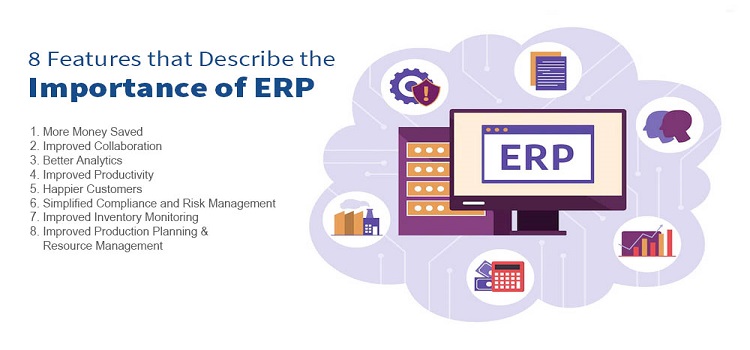In the fast-paced world of business, staying ahead requires streamlined processes and seamless coordination. Enterprise Resource Planning (ERP) systems have emerged as indispensable tools, revolutionizing the way organizations operate.
Centralized Data Management:
ERP systems serve as a centralized hub for data, consolidating information from various departments. This ensures real-time access to accurate data, minimizing errors and facilitating informed decision-making.
Improved Efficiency and Productivity:
By automating routine tasks and integrating business processes, ERP Corporate Solution systems enhance operational efficiency. This allows employees to focus on strategic initiatives, leading to increased productivity across the organization.
Enhanced Collaboration:
Communication is key in any business. ERP systems break down silos by providing a unified platform where departments can collaborate seamlessly. This fosters cross-functional teamwork, leading to quicker problem-solving and innovation.
Financial Management:
One of the core benefits of ERP is its ability to streamline financial processes. From accounting to budgeting, ERP systems offer a comprehensive suite of tools that enable organizations to maintain financial transparency and compliance.
Inventory Control and Supply Chain Management:
ERP systems provide real-time visibility into Inventory software levels, helping businesses optimize stock and reduce carrying costs. Integrated supply chain management ensures efficient procurement, production, and distribution processes.
Customer Relationship Management (CRM):
A successful business prioritizes its customers. ERP systems often include CRM modules that help organizations manage customer interactions, track sales leads, and enhance customer satisfaction through personalized services.
Data Security and Compliance:
In an era of increasing cyber threats, data security is paramount. ERP systems incorporate robust security measures, ensuring the confidentiality and integrity of sensitive business information. Additionally, they assist in adhering to industry regulations and compliance standards.
Scalability:
As businesses evolve, so do their needs. ERP systems are designed to scale alongside growing enterprises. Whether it’s expanding to new markets or adding new functionalities, ERP systems provide the flexibility to adapt to changing business landscapes.
Business Intelligence and Reporting:
ERP systems offer advanced analytics and reporting tools, transforming raw data into meaningful insights. This empowers organizations to make data-driven decisions, identify trends, and capitalize on opportunities for continuous improvement.
Conclusion:
In conclusion, an ERP system is not just a software solution; it’s a strategic asset that propels businesses toward success. By integrating processes, fostering collaboration, and providing real-time insights, ERP systems offer a competitive edge in today’s dynamic business environment. Embracing ERP is not merely an option; it’s a necessity for those aiming to thrive and grow in the ever-evolving marketplace.


One thought on “Why ERP System is important for any business”
Comments are closed.